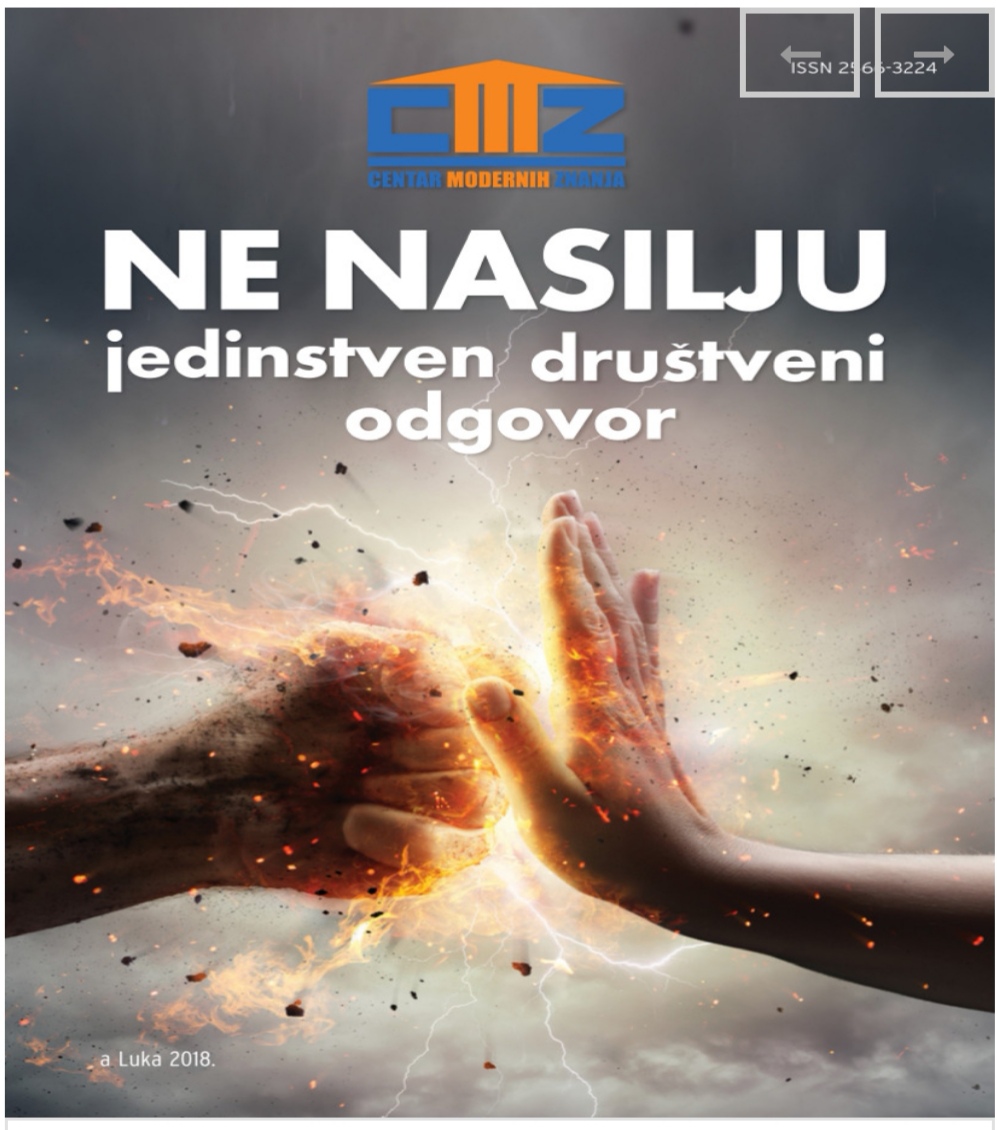НОРМАТИВНИ И ПРОФЕСИОНАЛНИ СТАНДАРДИ У ИЗВЈЕШТАВАЊУ ОНЛАЈН МЕДИЈА О МАЛОЉЕТНИЧКОМ НАСИЉУ У РЕПУБЛИЦИ СРПСКОЈ
NORMATIVE AND PROFESSIONAL STANDARDS REGARDING ONLINE MEDIA REPORTING ON JUVENILE VIOLENCE IN THE REPUBLIC OF SRPSKA
Author(s): Anđela Kuprešanin VukelićSubject(s): Social Sciences, Psychology, Media studies, Sociology of Culture, Social Norms / Social Control
Published by: CENTAR MODERNIH ZNANJA
Keywords: juvenile violence; legislation concerning media; mechanism of self-regulation; editorial policy of the media; online media;
Summary/Abstract: One of the significant aspects of the media world within the context of dissemination of violent contents pertains to the reporting on juvenile violence as a form of juvenile delinquency. Media coverage of socially unacceptable forms of behaviour of children and minors, apart from meeting professional and normative standards, demands an additional dimension of sensitivity on the side of professional communicators, implying a special approach to the way violent contents featuring the aforementioned population groups are created and presented. The author feels urged to research into the matter due to global trends of continual increase into the number of young users of the Internet and a pronounced penetration of online media into that sphere, with the media world of the Republic of Srpska being no exception in this regard. The said trends demand that an adequate normative framework for online media be established and professional standards be met, in order for minors to be protected both as recipients of violent contents and as either victims or offenders. Based on the analysis of the legislation concerning online media, as well as the analysis of its in-house rules, and the analysis of the examples of releases concerning juvenile violence on Internet portals, the paper presents the extent to which normative and professional standards have been met. This paper aims at determining the approach to the matter discussed, that is, whether this approach is based on professional standards or on turning juvenile violence, as one of burning social issues, into sensationalism. Depending on the answer to this dilemma, both media in general and online media in particular, can either significantly contribute to fighting against the violent behaviour of minors or to presenting it in the way it is not perceived as a socially unacceptable form of behaviour. These two extremes are conditioned by a number of factors in media praxis, such as respective legislation, the level of development of professional communicators, and the editorial policy of the media.
Journal: DRUŠTVENE DEVIJACIJE
- Issue Year: III/2018
- Issue No: 3
- Page Range: 547-557
- Page Count: 11
- Language: Bosnian, Serbian

